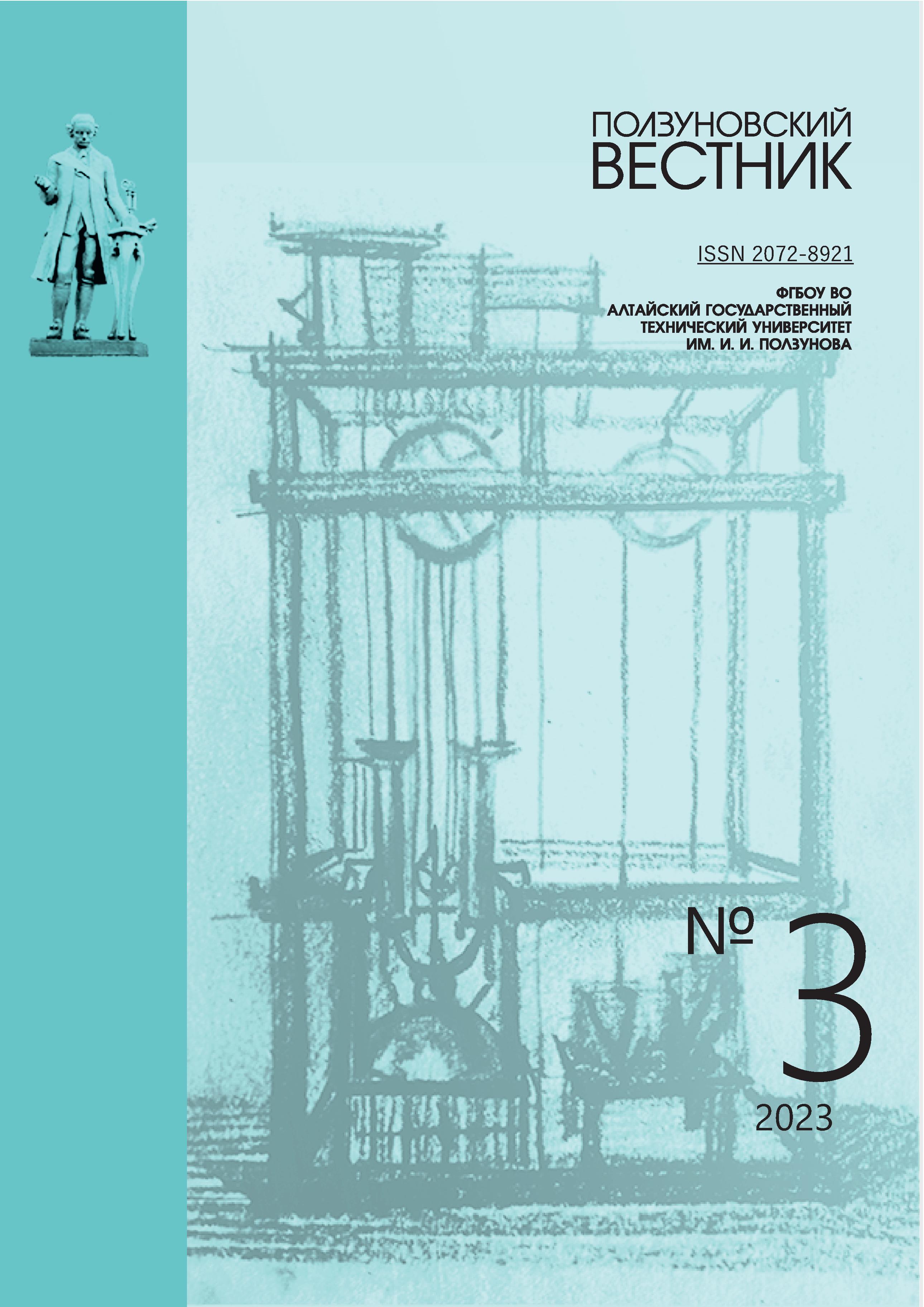LASSIFICATION AND CONFIRMATION OF ANTIMICROBIAL ACTIVITY OF A FOOD PEPTIDE IN AN IN VITRO EXPERIMENT
ZQMDEG
DOI:
https://doi.org/10.25712/ASTU.2072-8921.2023.03.020Keywords:
milk protein, pepsin, enzymatic hydrolysate, cow colostrum, biologically active peptides, antimicrobial activityAbstract
Peptides are of great interest to food manufacturers as food additives of a wide spectrum of antimicrobial action with high activity at micromolar concentration. Milk protein is an easily accessible source of antimicrobial peptides. The aim of the work was to isolate an antimicrobial peptide from cow colostrum protein, followed by its classification and confirmation of biological activity in an in vitro experiment. Pepsin hydrolysate of cow colostrum and a peptide with the conditional name R(1) isolated from cow colostrum hydrolysate were used as objects of research. The antimicrobial activity of the peptide was determined by the disco-diffusion method. A polypeptide consisting of 11 amino acids with the following sequence was isolated from the pepsin hydrolysate of cow colostrum: IRHGRCVSCSR. Based on the identification of the peptide based on the Antimicrobial Peptide Database, it was found that it is 40% similar to the antimicrobial peptide AP00450, which acts ruinously on gram-positive and gram-negative bacteria. Identification by the Protein NCBI database showed the similarity of the studied peptide R(1) with an antimicrobial peptide named "14 kDaphosphohistidinephosphatase". It was found that the positive charge of the peptide is +1, the molecular weight is 7 kDa, the isoelectric point is 11.59, the hydrophilicity is + 12.51 Kcal * mol-1. The peptide belongs to the α-helical, which indicates its antimicrobial activity. The antimicrobial effect of the peptide was confirmed in an in vitro experiment.
References
Hager E., Chen J., Zhao L. Minireview: para-bens exposure and breast cancer // Int J Environ Res Public Health. 2022. Vol. 19(3). P. 1873. https://doi.org/10.3390/ijerph19031873.
Guha S., Sharma H., Deshwal G.K. A com-prehensive review on bioactive peptides derived from milk and milk products of minor dairy species // Food Prod Process and Nutr. 2021. Vol. 3:2. P. 1–15. https://doi. org/10.1186/s43014-020-00045-7.
Sharma C., Rokana N., Chandra M., Singh B.P., Gulhane R.D., Gill J.P.S., Ray P., Puni-ya A.K., Panwar H. Antimicrobial resistance: its sur-veillance, impact, and alternative management strat-egies in dairy animals // Front Vet Sci. 2018. Vol. 4. P. 1–27.
Shivanna S.K., Nataraj B.H. Revisiting Ther-apeutic and Toxicological Fingerprints of Milk-Derived Bioactive Peptides: An Overview // Food Bi-osci. 2020. P. 100771. https://doi.org/10.1016/j. fbio.2020.100771.
Беризовская Е.И., Ихалайнен А.А., Антохин А.М., Таранченко В.Ф., Гончаров В.М., Митрофанов Д.А., Удинцев А.В., Аксенов А.В., Шевлякова О.А., Родин И.А., Шпигун О.А. Методы обработки масссмектрометических данных при идентификации пептидов и белков // Вестник Московского университета Сер. 2. Химия. 2015. № 5. С. 266–327.
Niaz B., Saeed F., Ahmed A., Imran M., Maan A.A., Khan M.K.I., Suleria H.A.R. Lactoferrin (LF): a natural antimicrobial protein // Int J Food. 2019. Vol. 22. P. 1626–1641. https://doi.org/10.1080/ 10942912.2019.1666137.
Singh A., Duche R.T., Wandhare A.G. [et al.]. Milk-Derived Antimicrobial Peptides: Overview, Ap-plications, and Future Perspectives // Probiotics & Antimicro. 2023. Vol. 15. P. 44–62 https://doi.org/10.1007/s12602-022-10004-y.
Sansi M.S., Iram D., Zanab S., Vij S., Puni-ya A.K., Singh A., Meena S. Antimicrobial bioactive peptides from goat Milk proteins: in silico prediction and analysis // J Food Biochem. 2022. Vol. 5. P. 14311. https://doi.org/10.1111/jfbc.14311.
Yount N.Y., Bayer A.S., Xiong Y.Q., Yeaman M.R. Advances in antimicrobial peptide immunobiology // Biopolymers. 2006. Vol. 84. P. 435–458. https://doi.org/10.1002/bip.20543.
Downloads
Published
How to Cite
Issue
Section
License
Copyright (c) 2023 Sergey L. Tikhonov, Natalya V. Tikhonova, Inga G. Pestova, Natalia V. Merzlyakova

This work is licensed under a Creative Commons Attribution 4.0 International License.















 .
. This work is licensed under a
This work is licensed under a 
